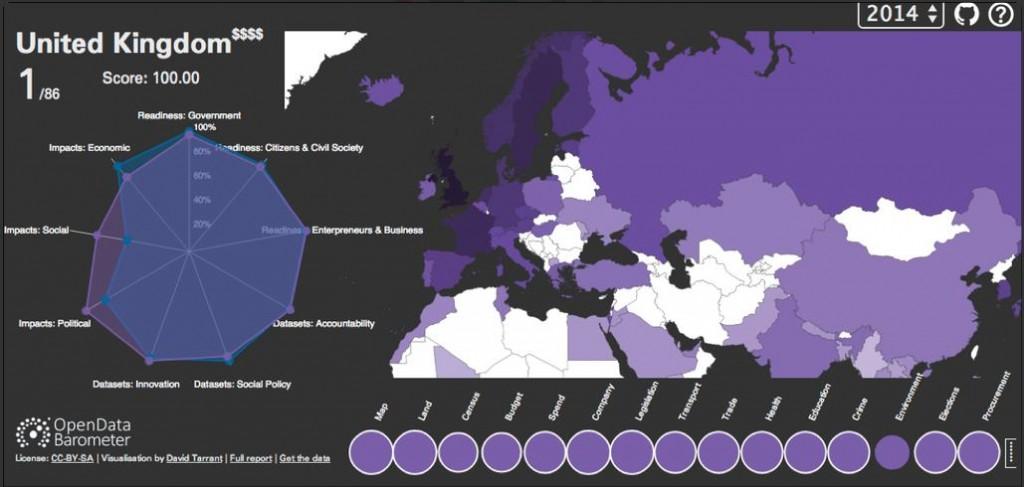Guest blog: The Open Data Barometer
Jose M Alonso explains the Open Data Barometer.
Jose M Alonso is the Open Data programme manager at the World Wide Web Foundation. He is an Open Data pioneer and advocate with extensive experience in the eGovernment and Web standards fields. Here he writes about the Open Data Barometer, the UK's place at the top – and what the Government has to do to be fully open.
Governments worldwide have acknowledged the potential of Open Government Data to reduce corruption, increase transparency, and improve government services. To keep track of progress, and advocate for solutions to challenges, the World Wide Web Foundation (Web Foundation) produces an annual report – the Open Data Barometer. The second edition, released this week, showed slow progress globally. Over 90% of the 86 countries surveyed in the Open Data Barometer still do not publish key datasets in open formats. Despite a G8 (now G7) Open Data Charter signed in 2013, which committed these nations to become ‘open by default’, almost half of these countries are still not publishing the key datasets promised. The survey did contain some good news for the UK though - the nation topped the Barometer’s country rankings. What contributed to this world-leading position, and what must the UK do to maintain and improve on its ranking? 
- High-level political commitment. While the UK’s current government seems committed to open data and effective laws are in place, it is important that this is maintained and evolved in future. In the UK, high-level commitment would be well-served by a Chief Data Officer – someone who has the power to compel the release of data as high-quality, open data from public bodies, while also ensuring that robust data protection and privacy safeguards are in place.
- Consistent and sustained support for both national and city-level open data programmes. City-level open data initiatives are delivering some of the most interesting impacts we observe across the globe. Policy initiatives such as “making local councils more transparent and accountable to local people” should be supported, sustained and enhanced. The UK could also look to mandate that government procurement contracts require the release of open data. Open access to R&D data funded by public money would also represent a significant step forward.
- Enhance the ability of government, civil society and entrepreneurs to understand and use data effectively. Resources dedicated to building the capacity of data users both inside and outside the government are critical to maintaining a supply-demand data balance and an increase in this understanding and ability can be accomplished through both training and adapting open data tools to local needs. The UK has taken strong initial steps here, but sustained efforts and investments are needed for open data to become ‘business as usual’.
- Topic
- Policy making
- Publisher
- Institute for Government